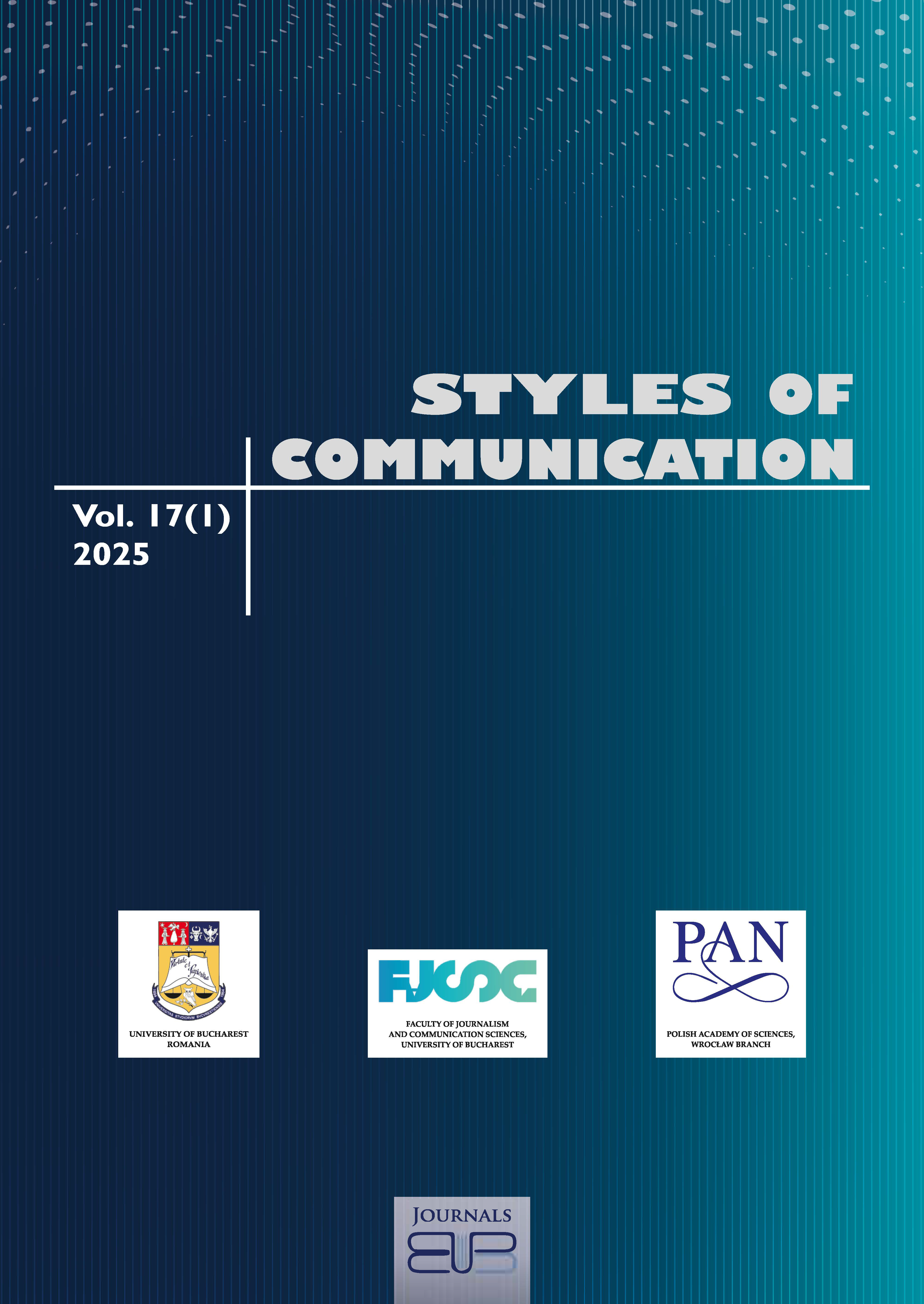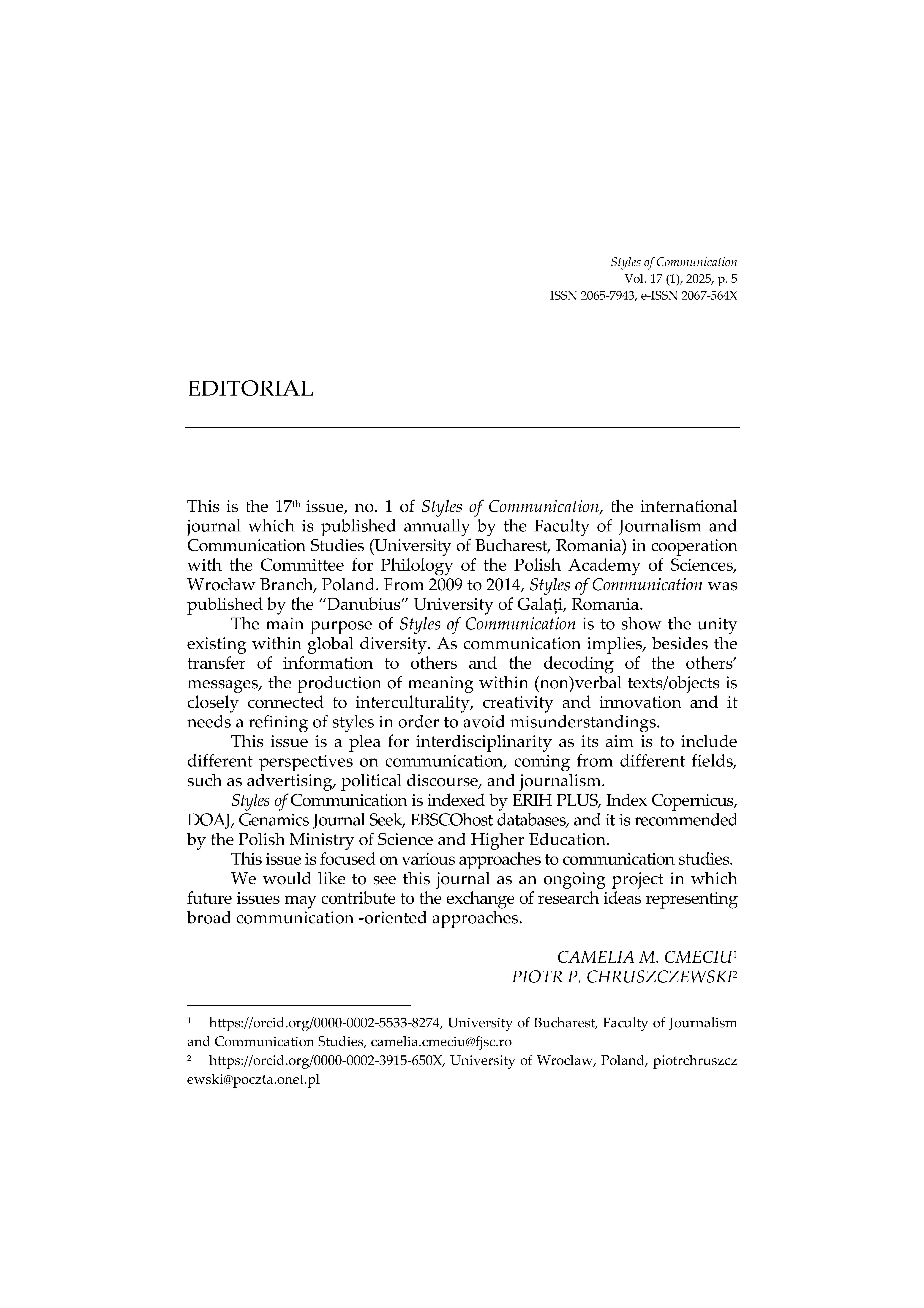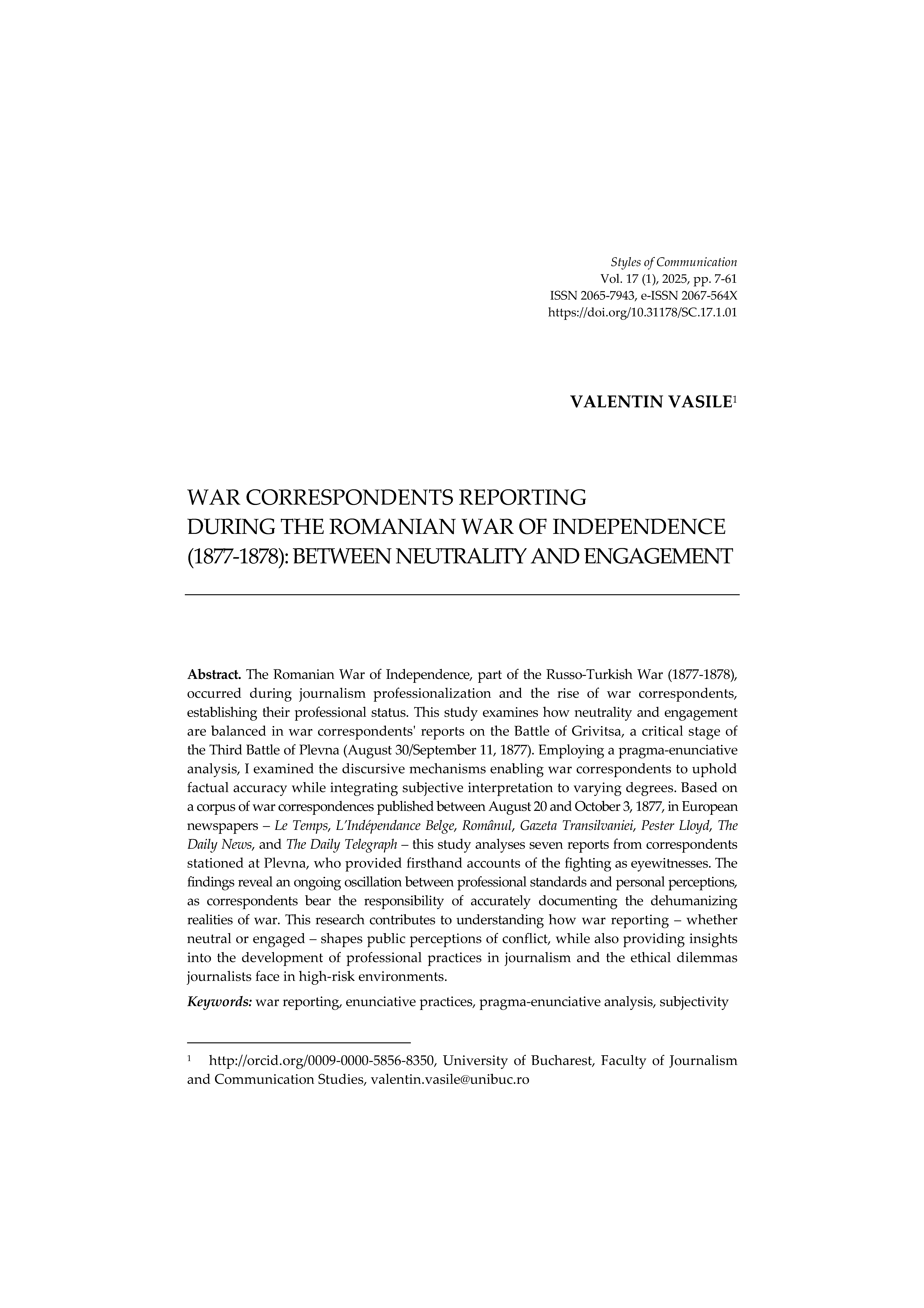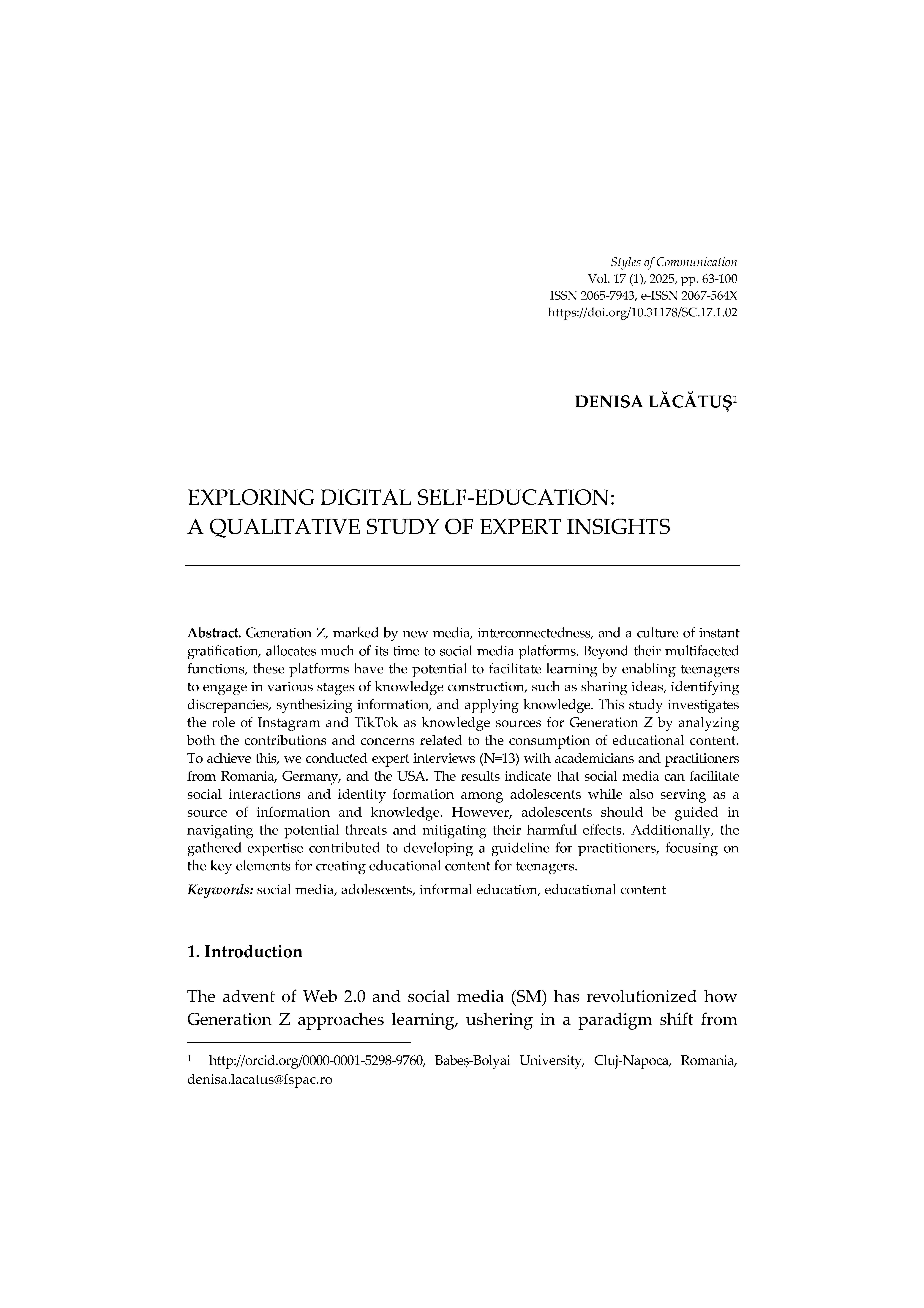Current Issue
Vol. 17 No. 1 (2025): STYLES OF COMMUNICATION

This journal is a plea for interdisciplinarity as its aim is to include different perspectives on cultural studies, coming from different fields, such as communication, political and sociological studies, public relations, semiotics, linguistics, anthropology, translation studies and so on.
Published:
2025-06-10









